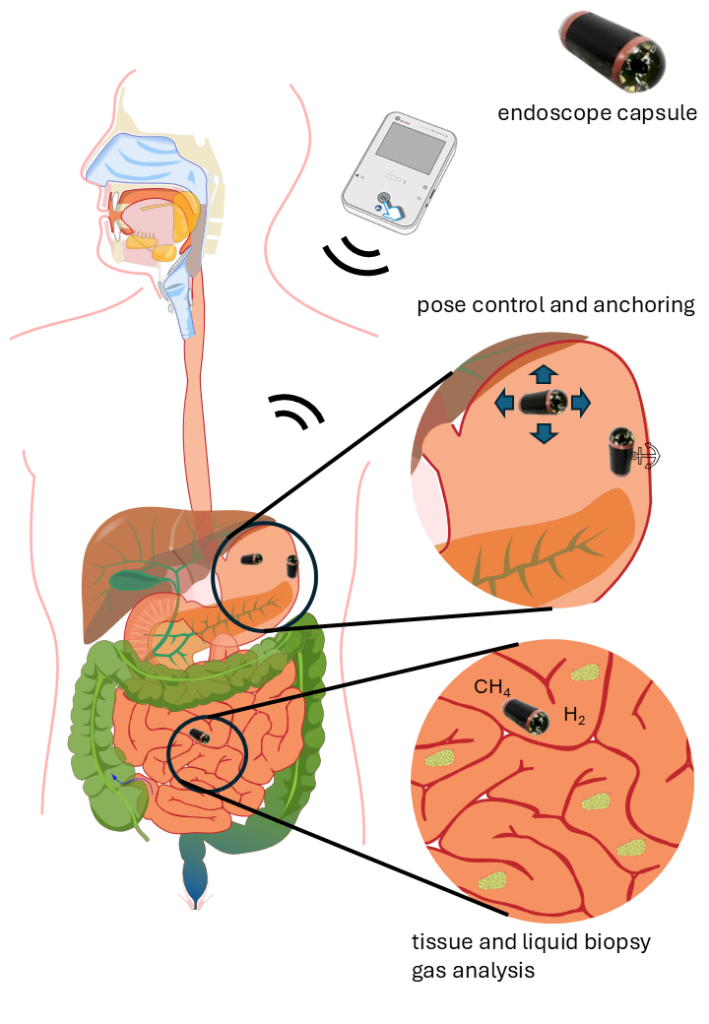Our aim is to develop enhanced functions for capsule endoscopes that include adaptive anchoring mechanisms, the ability to take tissue and liquid biopsies, and in vivo microbiome analysis using gas sensors. Bidirectional communication and capsule pose control will facilitate the precise actuation of the developed mechanisms.
In Germany, around 6 million endoscopies are performed every year. They play a central role in the diagnosis and treatment of cancer and other diseases of the gastrointestinal tract. Capsule endoscopes are an attractive alternative to traditional diagnostic procedures, as they offer a diagnosis of the entire gastrointestinal tract with reduced discomfort or risk of injury for the patient. In addition, regions of the small intestines can be reached that are not accessible by traditional endoscopy. Capsule endoscopes have the potential to significantly reduce the workload of gastroenterologists. However, the range of functions still lags far behind that of established endoscopes.
Our vision is to develop enhanced functions for capsule endoscopes that include adaptive anchoring mechanisms, the ability to take tissue and liquid biopsies and in vivo microbiome analysis using gas sensors. In addition, secure bidirectional communication through the body at high data rates must be guaranteed. Magnetic capsule pose control will facilitate the precise actuation of the developed mechanisms.
So far, we have demonstrated a working set-up of a capsule module for liquid biopsy. We have developed actuator concepts for tissue biopsy and anchoring. A liquid repelling and gas permeable membrane has been integrated into a capsule module to protect the gas sensor. In a lab set-up, the sensor is able to obtain signals for hydrogen and methane content with promising accuracy. We have demonstrated bidirectional communication in a test set-up and showed magnetic capsule pose control on a water surface.
- Prof. Andreas Richter | TUD Dresden University of Technology, Institute of Semiconductors and Microsystems
- Prof. Uwe Marschner | TUD Dresden University of Technology, Institute of Semiconductors and Microsystems
- Karlheinz Bock | TUD Dresden University of Technology
- Jochen Hampe | TUD Dresden University of Technology, Else Kröner Fresenius Center for Digital Health
- Sebastian Schostek | Ovesco Endoscopy AG
- Christian Meyer | Renesas Germany GmbH (associated partner)

